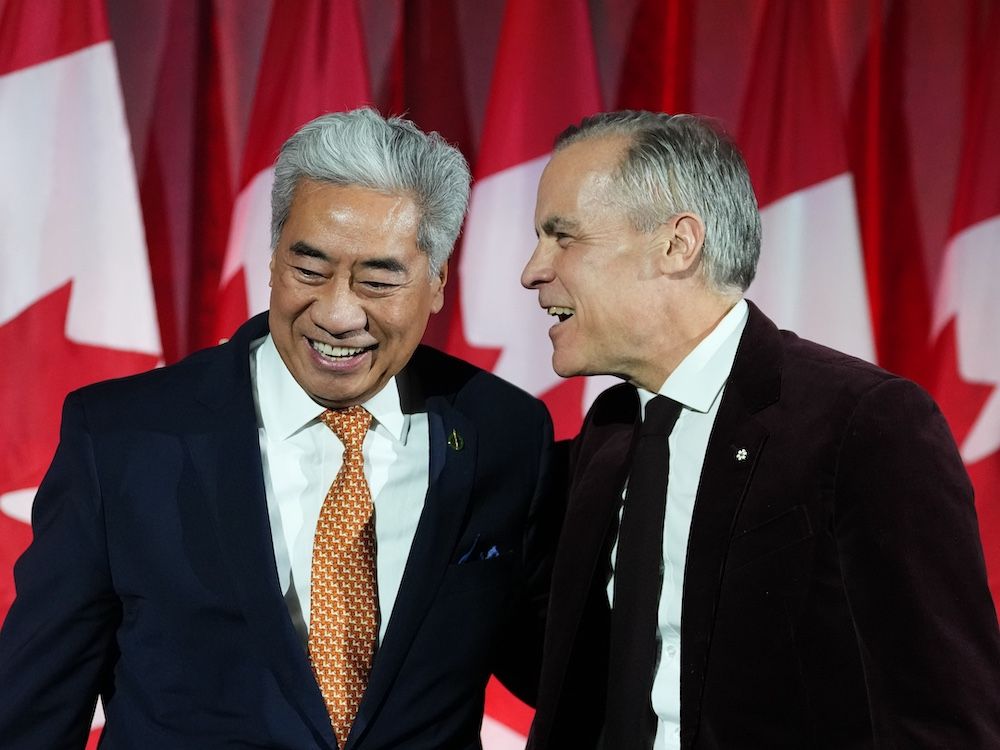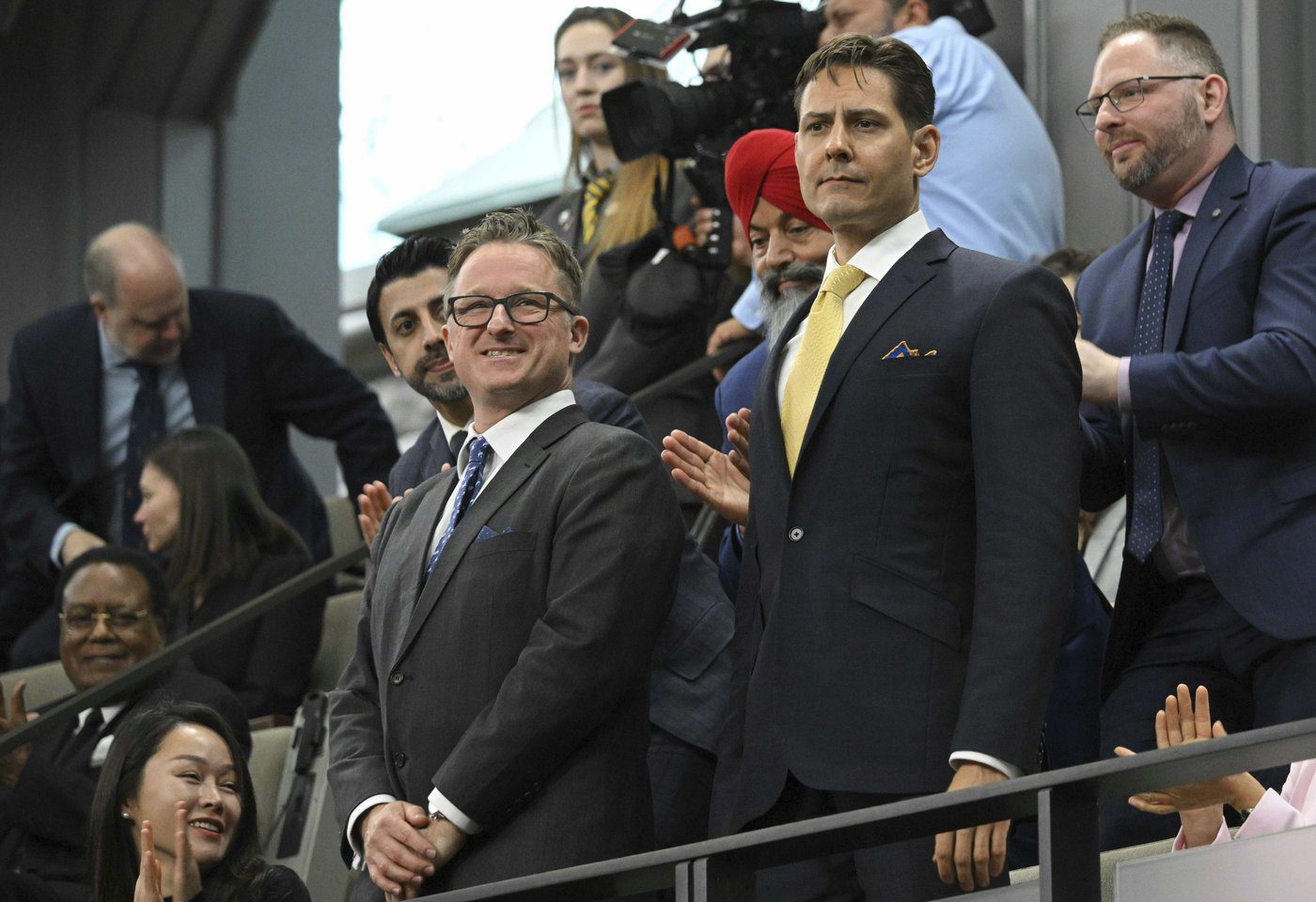
OTTAWA — New backbench Liberal MP Michael Ma, who made headlines for crossing the floor from the Conservatives last month, will join Prime Minister Mark Carney on his first trip to China next week.
Ma will be travelling to Beijing and Qatar alongside a coterie of Liberal cabinet members including Foreign Affairs Minister Anita Anand, Industry Minister Mélanie Joly and Natural Resources Minister Tim Hodgson.
His inclusion is notable because he is the only elected member of the delegation who is neither a minister nor a parliamentary secretary. He is vice-chair of the Canada-China Legislative Committee alongside 11 other MPs and senators.
Ma’s inclusion in the trip so shortly after crossing the floor to join Liberal ranks could suggest he is primed for a promotion from the party’s backbench, though some critics see it as a reward for joining government ranks.
Asked why Ma was joining the delegation, PMO spokesperson Audrey Champoux said the Toronto-area MP has “considerable experience building relationship between people, businesses and communities, across the Indo-Pacific region.”
“Additionally, as the Member of Parliament representing Markham—Unionville and one of Canada’s largest Chinese-Canadian communities, Mr. Ma will add important perspectives and insights throughout the delegation’s work,” she added.
Ma did not immediately respond to an interview request about the trip.
Ma was born in Hong Kong and immigrated to Canada at the age of 12. He was first elected for the Conservatives in Markham—Unionville in April 2025. He won the seat after Liberal candidate Paul Chiang dropped out of the race due to controversy over what he described as a joke about a bounty by China on another Conservative candidate and Hong Kong democracy activist Joe Tay.
But Ma created a political maelstrom when he announced he was crossing the floor to the Liberals just hours after the House of Commons rose for the winter break in December. His addition to the government ranks brought the minority Liberals to 171 MPs, one seat from a slim majority.
News of Ma’s attendance on the trip raised eyebrows among his former Conservative colleagues on social media.
“I mean … come … ! on … ! At what point do we just say, the Liberal Party of Canada has no values, no principals,”
wrote MP Dean Allison on X
.
Carney’s trip to Beijing is the first visit by a Canadian prime minister to China since then Prime Minister Justin Trudeau in 2017.
Both Carney’s and Trudeau’s trips have remarkably similar objectives: rebuild Canada’s economic and diplomatic relationship with China to help diversify the country’s trading partners following the election of U.S. President Donald Trump and a cooling of bilateral relations with China under their predecessor.
Following trips to China in 2016 and 2017, Trudeau repeatedly said that rebuilding the relationship with the
Asian economic powerhouse was a “top priority.”
He also accused Prime Minister Stephen Harper for Canada’s frosty relationship with China.
But Canada’s relationship with China quickly soured after that.
First came the arrest by Canadian authorities of Huawei top executive Meng Wanzhou on behalf of the U.S. government. Then China detained two Canadian citizens, Michael Kovrig and Michael Spavor, for nearly three years in what is widely considered as retaliation for Meng’s arrest.
The Trudeau government’s relationship with China became frigid, leading it to release a new Indo-Pacific strategy in 2024 that focused on developing relationships in the region to get around China’s “increasingly disruptive global power.”
But faced with rising U.S. protectionism in Trump’s second term, Carney sees China as a crucial new trading partner to help alleviate Canada’s dependence on the Americans.
His trip next week will be his first meeting in China with President Xi Jinping. On top of the aforementioned ministers, Agriculture Minister Heath Macdonald, International Trade Minister Maninder Sidhu and parliamentary secretary Kody Blois will also travel to Beijing.
Carney will then travel to Doha, the capital of Qatar, before attending the World Economic Forum annual meeting in Davos, Switzerland.
National Post
cnardi@postmedia.com
Our website is the place for the latest breaking news, exclusive scoops, longreads and provocative commentary. Please bookmark nationalpost.com and sign up for our politics newsletter, First Reading, here.




